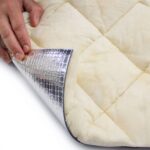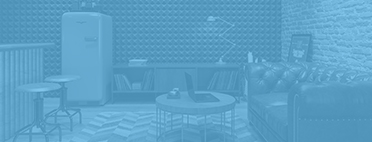
Aircraft soundproofing is probably not something you think a lot about, especially if you’re not a frequent traveler. However, think for a moment about how clogged your ears feel when you leave an airplane. You’ll probably find it takes a few hours for you to be able to hear at the same volume you did before you left.
Now, imagine what the pilot and crew, who fly constantly and for many hours, go through, and you should get an idea of why soundproofing for aircraft is so important. Whether you or someone you know has a small plane of their own that’s unreasonably loud, or you’re just curious about how pilots and flight crew can protect themselves against excesses of sound that may occur in airplane cabins, read on.
What Types of Noise Do You Hear on an Airplane?
Obviously, the noise you hear from an airplane are the sounds made by the aircraft itself. But where do those sounds come from? There are four main sources of aircraft sound.
The first is the propellers. These blades whirl around at extremely high speeds, generating a significant amount of noise as they do. The next is aerodynamic noise. This is sort of like road noise when you’re driving. It’s things like noise from turbulence, leaks and slipstream.
Then of course, there’s the engine exhaust — the sound of the engine pushing exhaust through the plane and, finally, there’s your standard engine vibration.
What Aircraft Cabin Soundproofing Materials Do Engineers Use?
The types of aircraft soundproofing materials engineers use will vary according to the size of the aircraft, the goals of the aircraft cabin soundproofing project and other factors, including cost and the amount of time allotted the engineers for soundproofing for airplane cabins. However, they’ll typically go about soundproofing airplane cabins by laying down specially designed soundproofing material anywhere sound is likely to transmit through the cabin.
One of the best materials for soundproofing airplane cabins is a fiberglass composite, like the Quiet Barrier® Fiberglass Composite offered by Soundproof Cow. This soundproof barrier is specially designed to resist high levels of heat, while also blocking high-frequency sound.
Where Can I Learn More About Aircraft Soundproofing?
While you can leave airplane cabin soundproofing to the experts, you’ve probably encountered a number of situations in your home, office or other workplace where soundproofing would be a big help. Soundproofing solutions can protect your hearing, improve your sleep and increase your ability to concentrate. Soundproofing an office can make it easier for workers to communicate when necessary and to focus on their work when engrossed in a big project.
Soundproofing in commercial areas can improve customer experience, such as allowing restaurant diners to easily communicate with their dining guests and hear specials presented by the servers.
To learn more about the science of sound and soundproofing, and where to find the materials you need to soundproof your small airplane cabin, home or other areas, contact Soundproof Cow today!








